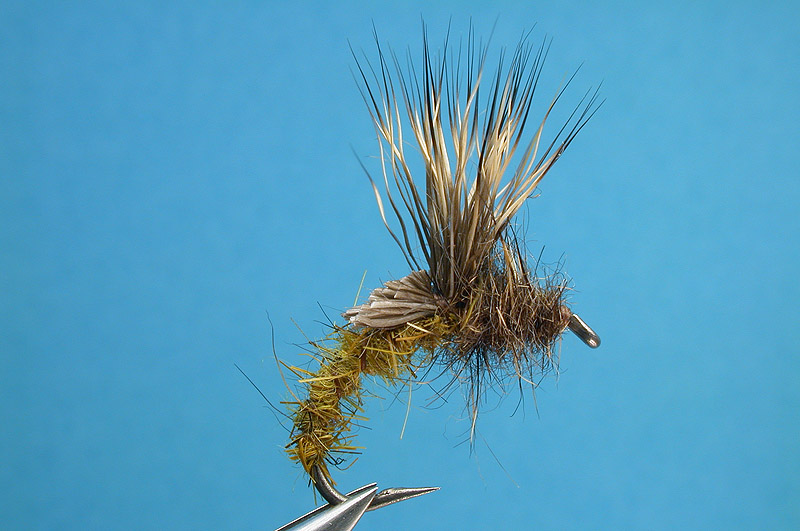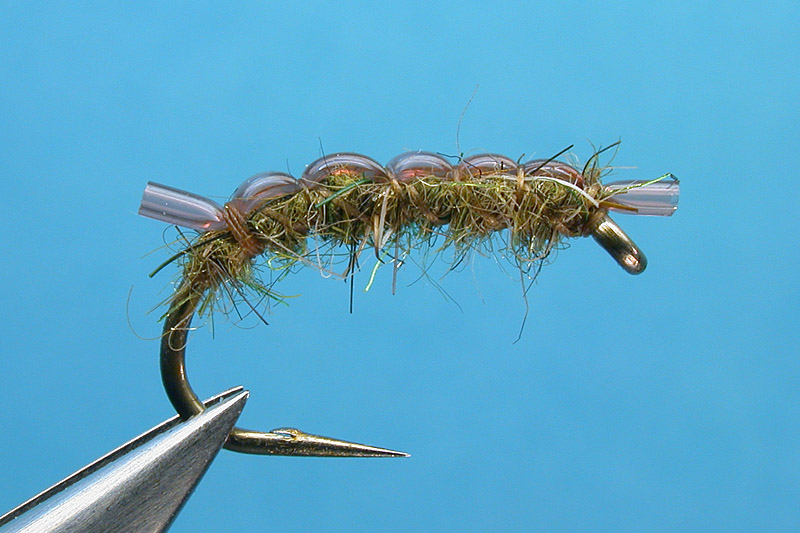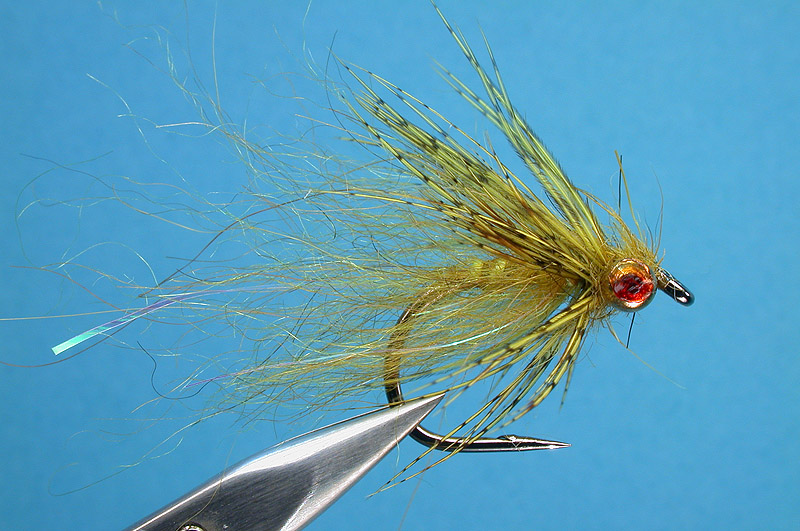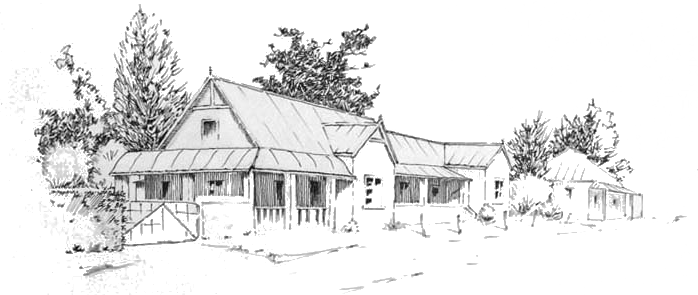HANS WEILENMANN’S SIX FAVOURITE STREAM PATTERNS
Hans Weilenmann is well known to most serious fly tiers worldwide. His articles and reviews have been featured in several books and magazines, including the American Fly Fisherman magazine. Hans has fished around the world and is an FFF master fly casting instructor, an EFFA master fly casting instructor and a member of the EFFA certification advisory board. He lives in Amstelveen in the Netherlands.
One of Hans’ many specialties is using cul de canard feathers in a variety of his patterns, perhaps most notably in his signature fly, the very effective and versatile CDC & Elk.
His interest in fly-tying, macro photography and a background in computing and networking, all came together in Flytier's Page, a magnificent web site created by him to showcase fly tiers and their patterns from around the world. If you have not looked at his website before, you are in for a very pleasant surprise!
See http://www.danica.com/flytier/)
CDC&Elk

(Originator: Hans Weilenmann)
Hook: Tiemco 102Y #15
Thread: Uni-thread 6/0, brown
Body/'legs': CDC, natural (or color to match a natural)
Wing/head: Mule deer, natural
Note: This pattern, more than any other, defines why I enjoy fly tying, and fly fishing.
Simple, functional, elegant and devastatingly effective across a range of conditions, species and methods of presenting it.
Video link: http://www.youtube.com/watch?v=7iXWIS9dprM
Diving CDC&Elk

(Originator: Hans Weilenmann)
Hook: Tiemco 2499SP #12 (or equivalent scud hook)
Bead: Tungsten 1/8", black
Thread: Uni-thread 6/0, brown
Abdomen/barbs: CDC Type 4, sparse
Wing: Deer hair, short and sparse
Thorax: Argentinean hare, dark grey
Note: Abdomen tied CDC&Elk style. On its own, or fished as a dropper suspended from a buoyant dry fly - this pattern means business, and delivewrs the goods.
Video link: http://www.youtube.com/watch?v=QNAjIgP5fG4
DHE 2.0 (Deer Hair Emerger 2.0)

(Originator: Bob Wyatt)
Hook: Partridge GRS 6A #12
Thread: Uni-thread 6/0, Brown
Rib: Tying thread
Abdomen: Hare, dyed olive (or color to match the natural)
Wing/shoulder: Deer hair, natural
Thorax: Hare's ear, natural
Note: Dave Wyatt improved on his original, very effective, DHE. To fish, apply paste floatant to wing and thorax only - the abdomen should ride below the film.
Video link: http://www.youtube.com/watch?v=wn-WIbi_5ck
Trout Crack

(Originator: John Wilson)
Hook: Ashima F-45 #14 (or equivalent)
Thread: Benecchi 12/0, tan
Body: Hare/fine flash mixture, olive
Shellback: Liquid Lace, midge, light reddish/brown
Rib: Tying Thread
Note: Deceptively simple, yet very effective, scud pattern. Use weight on a leader to get it down to the zone fast, and it will pick up fish with surprising regularity.
Video link: http://www.youtube.com/watch?v=hHF77NHOpio
Llama Dragonfly Nymph

(Originator: Hans Weilenmann)
Hook: Partridge BMN (Big Mouth Nymph) #14
Thread: Benecchi 12/0, olive
Eyes: Brass beads, strung on red mono
'Tail': Flash, clear
Body: Veniard Llama mix, olive - in Gudebrod waxed nylon, chartreuse, loop
Hackle: Partridge, dyed olive
Head: Argentinean hare, dark olive
Note: While mostly a stillwater pattern, it manages to seduce river fish too. Deadly during dragonfly nymph migrations.
Video link: http://www.youtube.com/watch?v=VCjN4VQWHVw
Sparrow

(Originator: Jack Gartside)
Hook: Partridge BIN (Barbless Ideal Nymph) #10
Thread: Benecchi 12/0, black
Tail: Turkey rump marabou
Body: Squirrel, dyed olive; rabbit, natural grey 2:1 - in split thread
Hackle: Ringneck pheasant body feather - sparse, long
Head: Ringneck pheasant aftershaft feather
Note: The Sparrow is a very versatile pattern, from imitating small nymphs to dragonfly nymphs, sculpins and leeches. Even in the salt it has proven its value.
Video link: http://www.youtube.com/watch?v=xUTRyT8EtNM


